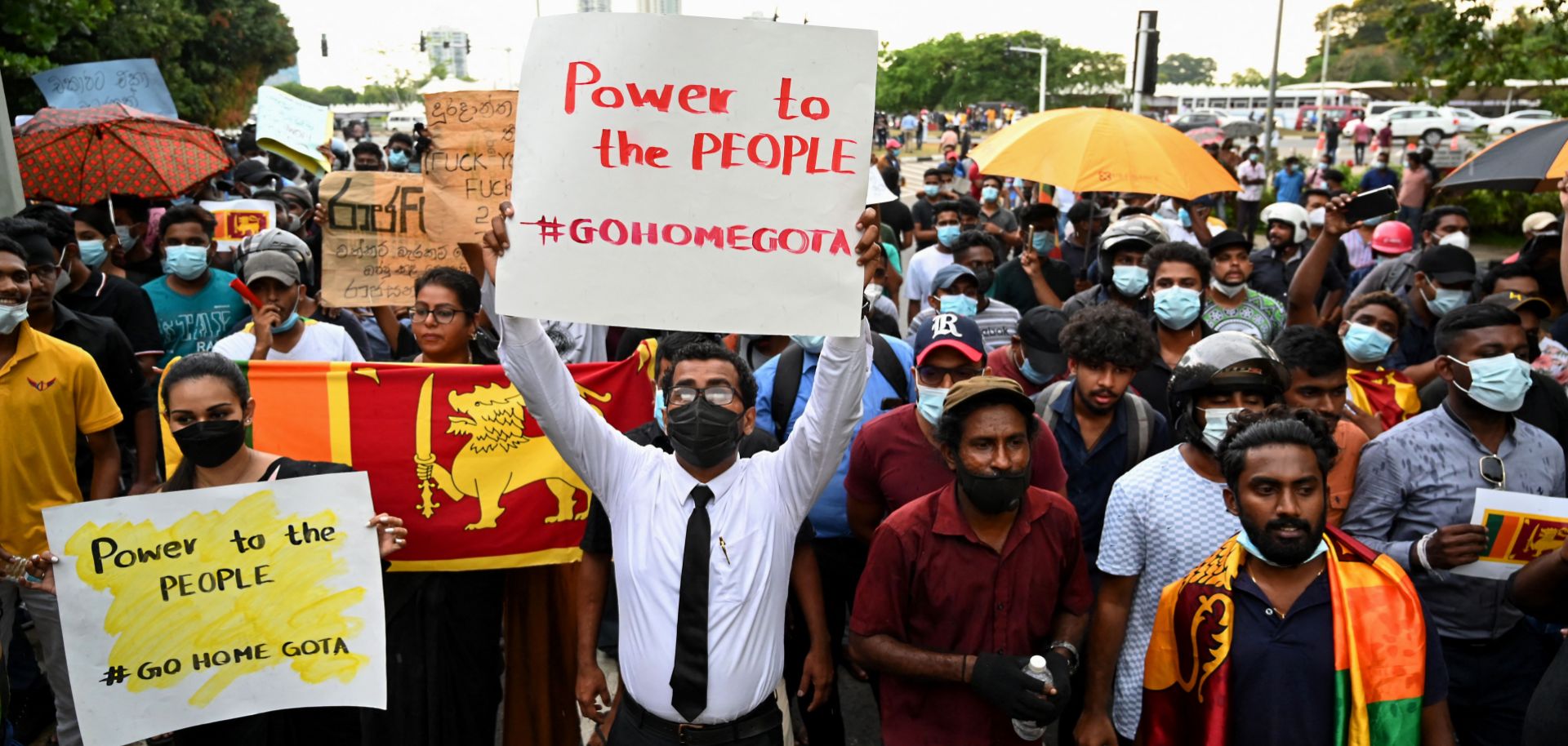The mass protests spurred by Sri Lanka's deepening economic crisis may provide a catalyst for political change, but the country's long-term financial outlook remains grim -- portending more unrest as basic goods and services become increasingly scarce. Social unrest driven by the severe economic crisis in Sri Lanka has morphed into a popular movement demanding political change in the country. In recent days, thousands have protested against the government amid widespread shortages of food, fuel, medicines and power. A combination of economic mismanagement and protracted negotiations with the International Monetary Fund (IMF) over a bailout package has exacerbated tensions between Sri Lankans and their political leaders in Colombo. Against this backdrop, calls for the resignation of President Gotabaya Rajapaksa and Prime Minister Mahinda Rajapaksa have grown as the public blames their authoritarian style of leadership for the country's woes. ...

